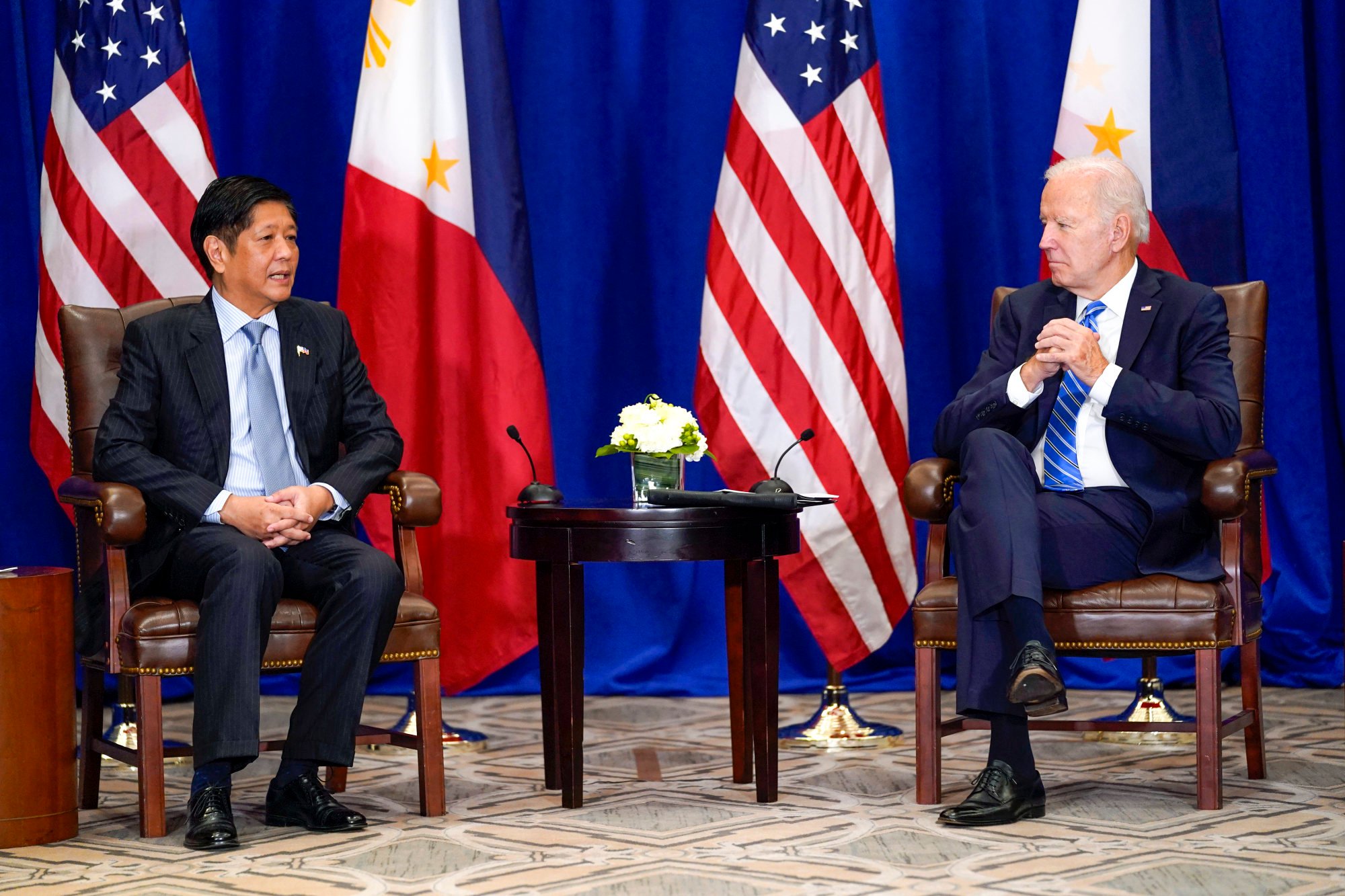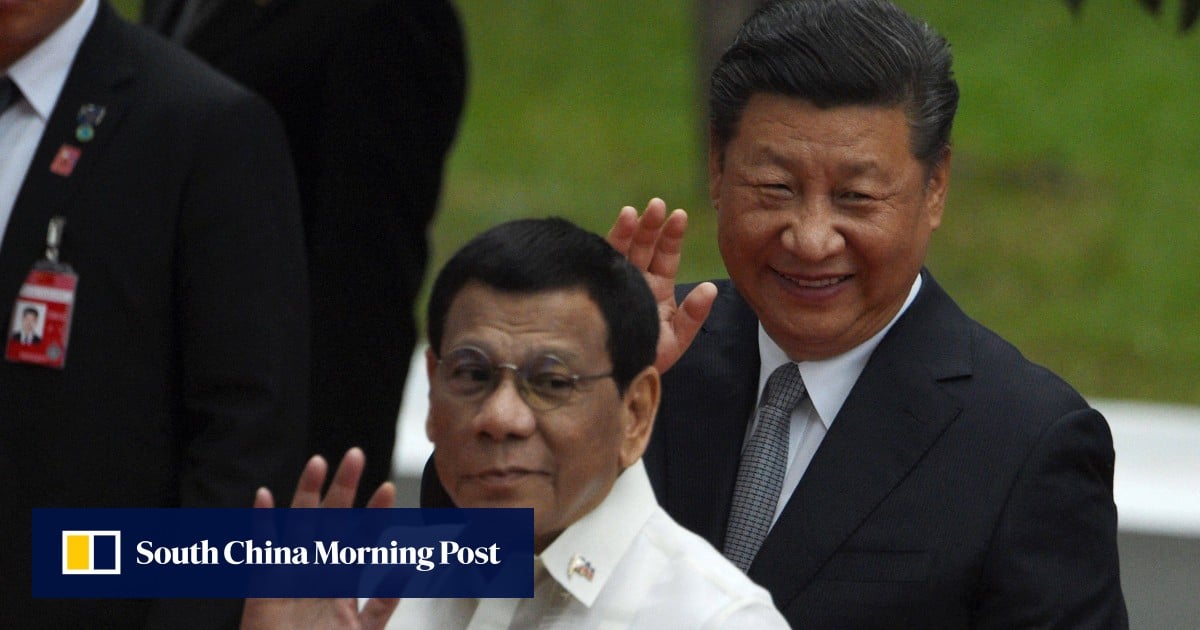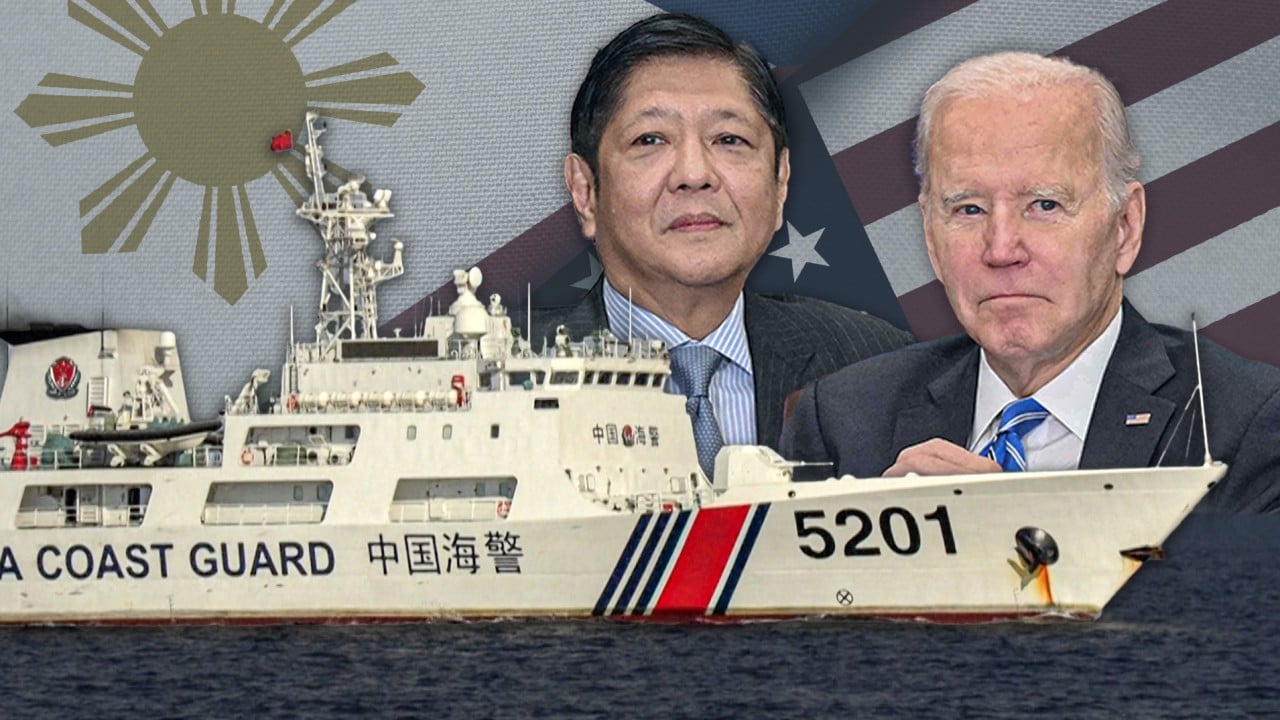At the end of the launch event for the Citizens’ Coalition Against War in Manila on Wednesday, the group released a petition calling for signatures asking for an end to the proxy war as well as a manifesto criticising the government’s position on the Second Thomas Shoal, a highly contested maritime landmark in the South China Sea that the Philippine refers to as Ayungin and Beijing calls Rén’ài Jiāo.
The coalition, led by Herman Tiu Laurel, founder of the Philippine-Brics Strategic Studies think tank and board chairman of the Association for Philippines-China Understanding, objected to the Philippine’s defending its territorial rights over the shoal against China’s claims, saying: “The Ayungin incidents have been described as Chinese ‘aggression’, but appear to be a valid response to the US-BBM EDCA military ‘provocations’.”
BBM refers to President Ferdinand Marcos Jnr’s nickname “Bongbong” while EDCA is the abbreviation for the Enhanced Defence Cooperation Agreement, which the Philippine government signed with the US, allowing the latter’s troops to have a rotational presence inside Philippine military facilities.

The coalition’s petition states: “We strongly reject, as the world must reject, the false narrative that China has acted as ‘a naked aggressor’ in these non-lethal incidents. To begin with, China has been circumspect in making sure that no weapons of war were used, and there were no fatalities in these unfortunate incidents.”
The text of the petition also argues that the United States’ “pivot to Asia” strategy – aimed at strengthening Washington’s bilateral security alliances with a number of countries in the continent – “has led to the escalation of tensions in the region, using the Philippines, among others as a strategic pawn in its dangerous game”.
One of the speakers at the event, Anna Malindog-Uy, claimed that other countries now perceived the Philippines as being well on its way to becoming “the Ukraine of Asia”.
Malindog-Uy, who describes herself on her Facebook page as a doctoral candidate in economics at Peking University, acknowledged that “the Philippine’s strategic location makes it a pivotal player in any potential military conflict in the Asia-Pacific region, particularly in the context of rising geopolitical tension between the US and China.”
However, the Philippines should not take sides if war should break out since the conflict would be “American-orchestrated”, she said.
“Why should we allow the Philippines to be dragged into a conflict which is not of its own making and where it should not take part,” she added.
Duterte’s former spokesman, Harry Roque, also spoke against the presence of US troops in Philippine military facilities, saying these were “a threat to our security because with their presence the country becomes a target by other countries opposed to the US”.
Former president Duterte himself vowed in a recent interview with Chinese state-run news agency Global Times that should he ever succeed in removing Marcos Jnr from the presidency, he would remove the EDCA bases.
Roque revealed the so-called “gentleman’s agreement” between Duterte and Xi, and suggested that China’s aggressive actions towards resupply missions to the shoal were because they felt Marcos Jnr’s administration had violated the unwritten pact made by his predecessor.
Although Duterte was highly popular during his time in office, his rants against America and his threats to eject the EDCA bases and scrap the 1951 US-Philippine Mutual Defence Treaty apparently did little to dent most Filipinos’ positive attitudes perceptions of the US, which has long been an ally to their country.
A survey by private pollster Pulse Asia conducted in December 2022 showed that 84 per cent of 1,200 Filipino respondents wanted the government to work closely with the US to assert its sovereignty over the West Philippine Sea – which includes the country’s exclusive economic zone and other features like Thitu island in the South China Sea that Manila considers part its maritime territory.


